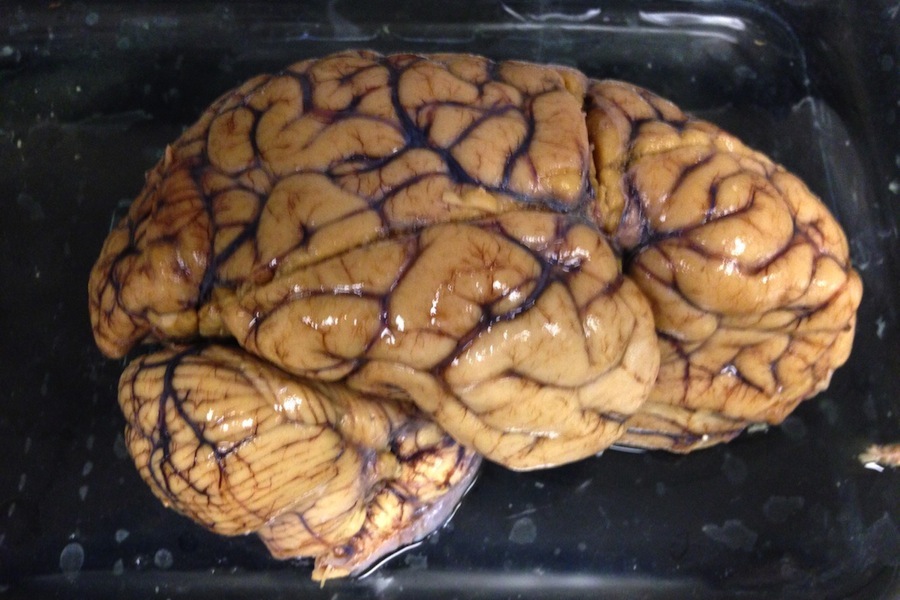
UC Davis MIND Institute fuels crucial research needed to investigate neurodevelopmental disorders
The human brain is one of the most complex organs in the body, yet obtaining brain tissue samples to study neurodevelopmental disorders has proven to be a difficult task.
The UC Davis MIND Institute Brain Endowment for Autism Research Sciences, (BEARS) program was formed to acquire brain tissue in order for scientists to effectively study disorders such as autism and seek to advance human health.
The BEARS program strives to collaborate with scientists, communities and national advocacy organizations from around the world to foster new ideas about brain donation. The hope is for the collaboration to augment research and preventative treatments for brain disorders.
“In the field of autism research there is a chronic shortage of brains available for study,” said Dr. Ruth Weir, postdoctoral research fellow in the MIND Institute laboratory of Dr. Cyndi Schumann. “Fewer than one hundred brains from individuals with autism have been studied over the last three decades, compared with tens of thousands of brains affected by Alzheimer’s disease.”
A major challenge to the brain tissue donation process is the short time window available for recovery and the process it takes to prepare the brain for research.
“From the time of death to when the tissue has been processed and frozen, we only have about 40 hours, hence there is a need for quick and successful harvesting and transport of specimens,” said Alicja Omanska, staff research associate IV and manager of the BEARS tissue donation program.
Currently, the BEARS program is partnered with Sierra Donor Services, an organ procurement organization that serves Northern California as well as Nevada. This service processes and keeps track of registered organ donors, using strategies like putting the pink donor sticker on an individual’s driver’s license.
However, donation rules and regulations do not apply uniformly to all bodily organs.
“Lots of people are unaware that brain donation is a very separate process to organ donation,” Weir said. “I have spoken to many students about brain donation, and commonly hear ‘My driving license says I am an organ donor so my brain can go to science,’ unfortunately this is not the case.”
Near or at the time of death of an individual, relatives may notify an organ procurement center if they wish. The center then informs the family of the BEARS program. If they agree to have the brain donated for research, the MIND Institute is notified immediately and arrangements for tissue retrieval and transport are made.
“The brain donations that are collected by BEARS will facilitate a variety of types of research ranging from understanding causal genetic alterations, to appreciating the kinds of altered brain organization and connections that may be associated with disorders,” said David Amaral, Beneto Foundation chair and director of research at the MIND Institute.
The goal of the BEARS program is to acquire brain tissue from both individuals with a neurodevelopmental disorder and those considered to have typical development.
With these samples, scientists at the MIND institute and around the world can study differences between typically developing individuals and those diagnosed with disorders such as autism.
“To maximize the usefulness of each donated case, the two halves of the brain are processed separately,” Weir said. “One hemisphere is ‘fixed’ in the preservative formalin, and can be used for histological studies, looking at the cells through staining, whilst the other half is frozen and can be used for genetic studies.”
The hemisphere that is preserved and used for histological studies enables researchers to look at different areas of the brain to compare size and count of neurons. The other frozen tissue, used for genetic studies, allows scientists to look at gene expression, sequencing and other molecular studies.
“Without brains to study, we can’t find the cause, and without knowing the cause, we cannot move towards developing treatments,” Omanska said.
The BEARS program aims to reach more than just organ procurement centers. There are many community events, conferences and walks where BEARS representatives share information about the program in order to bring awareness to the importance of brain tissue donation.
“We also do a lot of outreach at Medical Examiner’s offices, and hospitals as it’s extremely important for doctors, chaplains and funeral directors to be aware that families have an option of donating their relative’s brain for research,” Omanska said.
The MIND Institute Open House on April 22 will have an information booth and a donor registry available for anyone wishing to learn more about the program.
The program also seeks to establish partnerships with other programs interested in promoting brain tissue donation, such as the Autism Tissue Program and the National Institute of Child Health and Human Development.
The need for brain tissue in neurological science research has also prompted the establishment of Autism BrainNet, a program that supports families through the process of brain tissue donation while ensuring the integrity of the tissue for research.
Both pre-registered and normal donations are accepted from anyone diagnosed with autism or related genetic disorders, such as Fragile X syndrome or Dup15q.
“We hope that students and the general public will be ambassadors for BEARS and Autism BrainNet spreading awareness about the need for brain donations,” Amaral said.
Written by Shivani Kamal — science@theaggie.org




